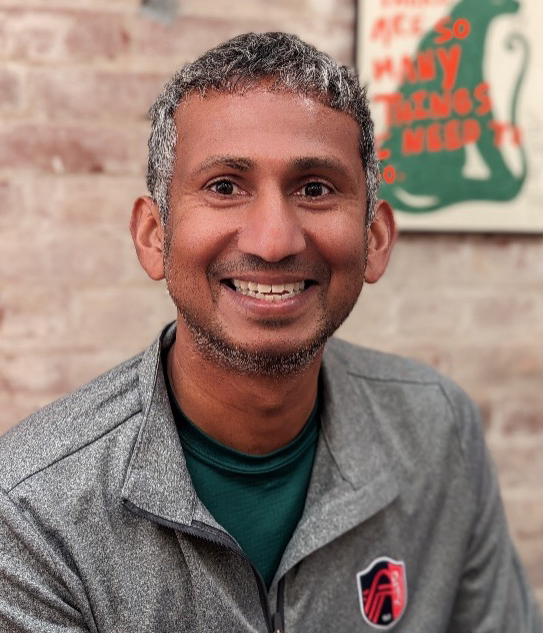Gaya K. Amarasinghe, PhD, Alumni Endowed Professor of Pathology and Immunology in the Department of Pathology and Immunology at Washington University School of Medicine, and a multi-institutional team of researchers were awarded a $16.8 million grant from NIH for their Ebola virus research. The grant from NIH’s National Institute for Allergy and Infectious Disease (NIAID) will fund the team’s project, “Molecular Mechanisms of Filoviral-host Interactions,” over the next five years.
The grant is a renewal of an original P01 award from 2016, which the team led by Dr. Amarasinghe received to study how the Ebola virus replicates and interacts with the body. At the time, a large Ebola epidemic in several West African countries attracted worldwide attention, including from researchers who wanted to better understand the biology of the deadly virus and find ways to target it therapeutically. Dr. Amarasinghe and his team’s studies may lead to the development of drugs that treat Ebola by interfering with the viral replication process, which could help minimize outbreaks and curb epidemics in the future.
“There’s still a lot that we don’t know about many pathogens and their interactions with the host during infection or host responses after infection. This program project grant renewal will enable us, and our network of collaborative investigators define how key host-viral interactions contribute to filovirus infections. Our studies will primarily focus on Ebola virus and Marburg virus that are known causative agents of recent outbreaks of viral hemorrhagic fever,” Dr. Amarasinghe said.
Other Washington University School of Medicine investigators on the project include Daisy Leung, PhD, Associate Professor of Medicine; Xiaoxia Cui, PhD, Associate Professor of Genetics; Kathleen Sheehan, PhD, Professor of Pathology and Immunology; and Michael L. Gross, PhD, Professor of Chemistry. Institutional partners on the project include Boston University; Icahn School of Medicine at Mount Sinai; University of California, San Francisco; University of Waterloo, Canada; Purdue University; and the Broad Institute.
